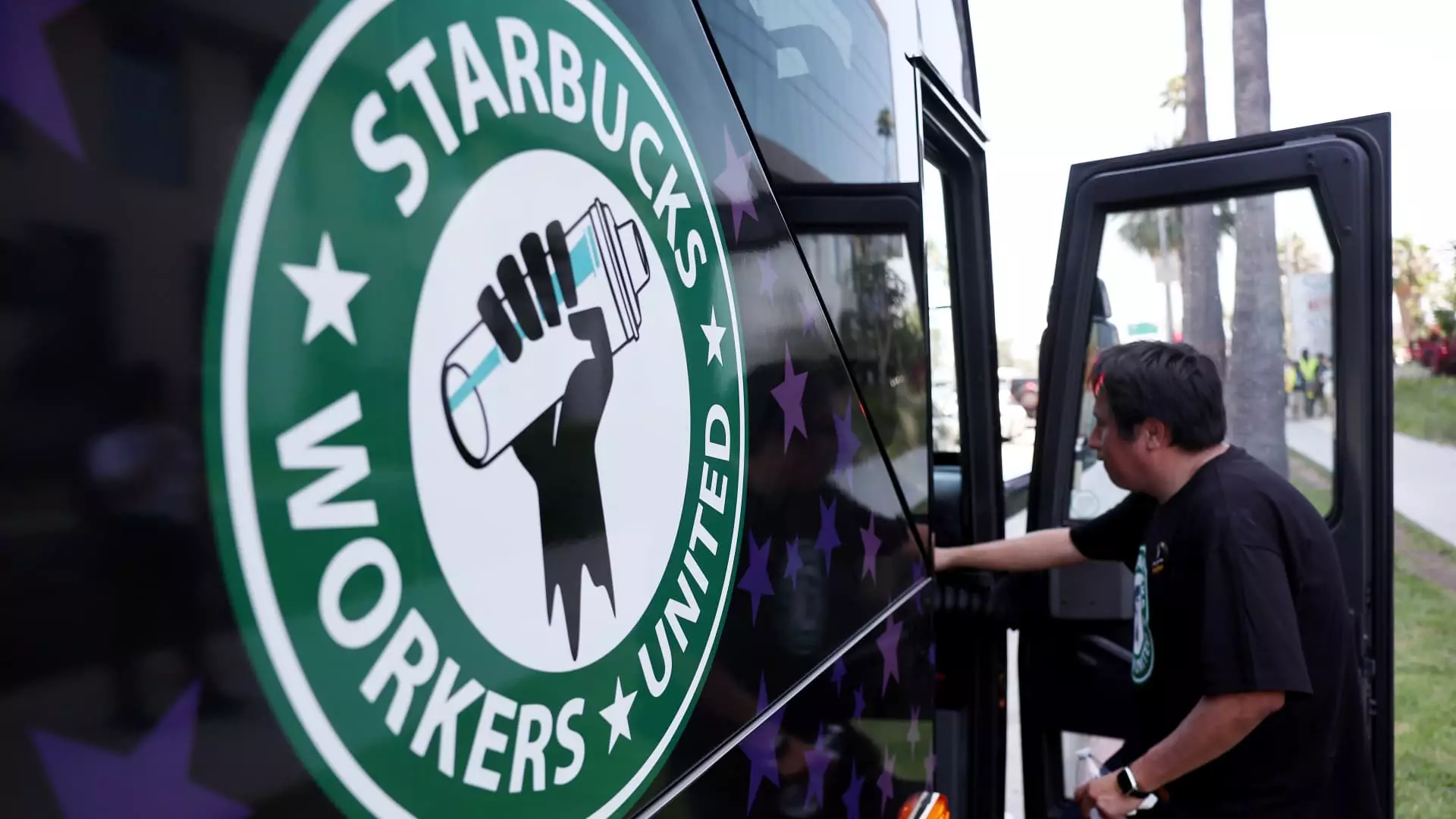The ongoing saga between Starbucks and its employees represented by Workers United has reached a critical juncture, with a staggering 98% of baristas authorizing a strike in pursuit of a formal contract. This overwhelming vote signals not only the determination of workers but also highlights the persistent disconnect between labor and management. As negotiations are set to take place, there is a palpable sense of urgency among workers who have been waiting for an agreement amidst claims of unfair labor practices and inadequate compensation proposals from the company.
Over the past year, both Starbucks and Workers United have invested countless hours in negotiations, yet the progress remains unsatisfactory for the union. In a pressing attempt to create a “foundational framework,” the forthcoming bargaining session is crucial, representing the last planned meeting for the calendar year. Despite numerous tentative agreements, the union reported that unresolved labor practice cases loom large, casting a shadow over the negotiations. The workers’ discontent stems primarily from what they claim is a lack of a comprehensive package addressing fair wages and essential benefits.
While Workers United highlights the grievances, Starbucks has attempted to frame the narrative differently. The corporation asserts its commitment to productive dialogue, expressing disappointment over the union’s strike authorization decision. They emphasize that since April, there have been over eight multi-day bargaining sessions that resulted in significant agreements across various issues deemed crucial by the workers. This contradiction presents a complex dynamic where both parties perceive their efforts to be valid yet irreconcilable.
Historically, Starbucks has faced a growing union movement within its locations, particularly following the initial successful unionization efforts in Buffalo three years prior. This moment marked a crucial turning point as Starbucks sought to mitigate the rising tide of unionization with various strategies, creating friction with consumers and lawmakers. The stakes were further elevated when former CEO Howard Schultz was summoned to testify before Congress, a clear indication of the broader implications at play.
As the tides shift with new leadership under CEO Brian Niccol, the company appears to pivot towards a more conciliatory position. Niccol’s recent announcement regarding an increase in paid parental leave is a strategic move, aimed at demonstrating good faith in negotiations. However, the matter of reduced annual pay increases for baristas amid a sales slump raises further concerns. This dichotomy between enhanced benefits and diminished pay raises adds an additional layer of complexity to the unfolding situation.
With over 500 Starbucks cafes having voted to unionize under Workers United, the implications of a potential strike could reverberate throughout the organization and beyond. As both sides continue to navigate this contentious arena, the focus on finding a fruitful resolution becomes increasingly essential. The future of Starbucks hinges not just on the outcome of these negotiations but also on the ability of both management and labor to engage in constructive dialogue that prioritizes the welfare of employees while securing the company’s operational integrity. As discussions continue, one thing remains clear: the brewing tensions between Starbucks and its baristas are far from resolved.


Leave a Reply